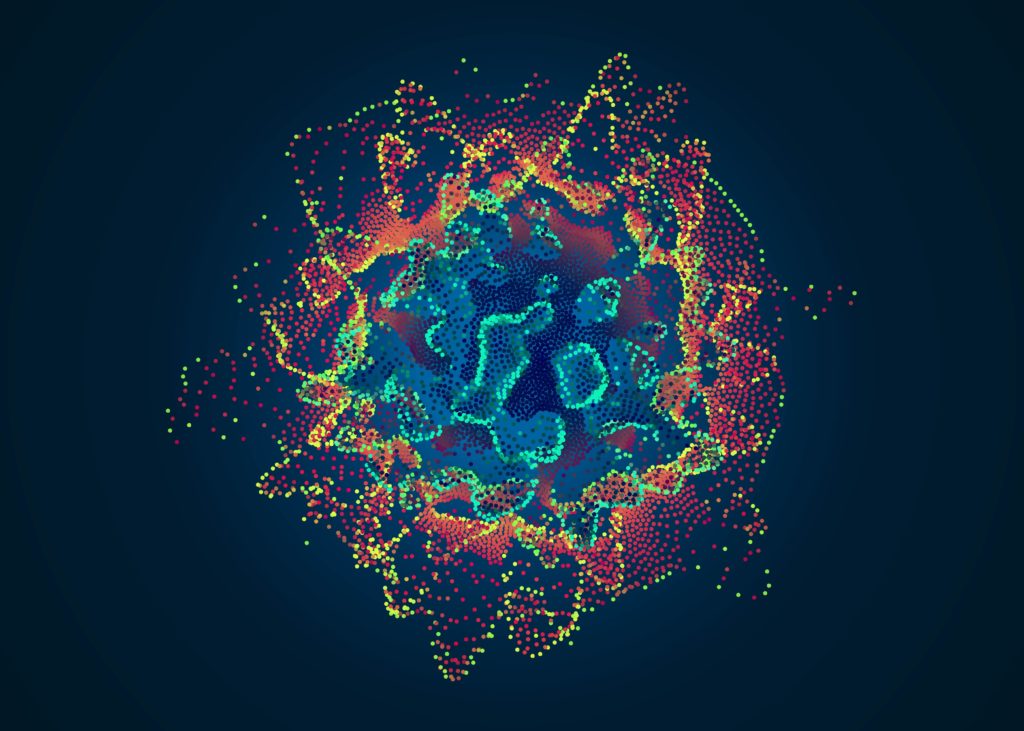
We’d probably all be happy to be a bit more creative — though research into our own opinions show that many people do actually consider themselves to be above average in creativity. An obvious self-bias.
This is where scientists who study creativity come in and find and research people who are truly creative — though creativity has long been studied there is relatively little research into the brains of creative people (and it is much harder and much more expensive to conduct).
In come UCLA Health scientists who have just published a study into the brain of creative people — known as big C creatives. The brain scanning was done on people who had been nominated by others in the creative industries as being particularly creative. What the researcher found is that:
-
- Exceptional creativity is associated with more random connectivity in the brain on the global scale
- Exceptional creativity therefore seems to use less efficient paths but connects distant brain regions through alternative if less efficient routes
- Exceptional creativity is however associated with higher efficiency local processing at rest
This suggests that the brains of those who are exceptionally creative as being wired differently or being used differently — of note is that it does not occur to me how this can be changed or learned (some other aspects of creativity can be learned). This suggest that being exceptionally creative is a natural predisposition.
I wonder if my brain is that creative? Probably not. I wouldn’t be writing summaries of scientific articles if it were. Alas!
Reference:
Ariana Anderson, Kevin Japardi, Kendra S. Knudsen, Susan Y. Bookheimer, Dara G. Ghahremani, Robert M. Bilder.
Big-C creativity in artists and scientists is associated with more random global but less random local fMRI functional connectivity.
Psychology of Aesthetics, Creativity, and the Arts, 2022
DOI: 10.1037/aca0000463
More Quick Hits
When Stress Is Good For Brain Functioning
Quick HitsDaily brief research updates from the cognitive sciences tress gets a bad rap – understandably it is a negative experience and has been shown over long periods of time, and with high intensity, to cause multiple negative outcomes, from...
Put Your Smartphone Down and Let your Mind Wander – You’ll Be Happier
Quick HitsDaily brief research updates from the cognitive sciences here’s a lot been said about smartphone usage and how it can be used and abused. Most of this concern revolves around usage in children or teenagers, however, with some research...
The Amazing Impact Of Reaching Out To Your Old Friends
Quick HitsDaily brief research updates from the cognitive sciences few weeks ago a friend I hadn’t seen for about 10 years sent me a message and asked if I had time to meet up. I was elated. "Sure," I immediately messaged back, "when and where?!"...
Really? Belief In Conspiracies Not Increasing
Quick HitsDaily brief research updates from the cognitive sciences e may feel like we’re in an age of conspiracy theories, that social media is turbocharging the wild and wacky theories, and the so-called information bubbles are sending people down...
You Wake Up 100 Times Each Night – And That Helps Memory
Quick HitsDaily brief research updates from the cognitive sciences have written numerous posts and articles on sleep and the brain (review here), and the evidence is crystal clear. Good and consistent sleep is essential to all aspects of physical...
Only Three Factors Can Predict Mental Illness With 90% Accuracy
Quick HitsDaily brief research updates from the cognitive sciences here are multiple mental disorders that can afflict us human beings. And the assumption is that these are complex in nature and there are a multitude of paths to mental illness....
Cooperation Amongst Strangers Is On the Rise
Quick HitsDaily brief research updates from the cognitive sciences espite a belief in many that society is falling apart and becoming less caring and social this study proves the opposite. A study published by Yuan et al. with the American...
Brain Network For Social Attraction Identified
Quick HitsDaily brief research updates from the cognitive sciences umans do it. Birds do it. Fish do it. So do multitudes of other species. We flock together, come together, are attracted to our kind. We are a social species. But the question is...
The Brainwaves That Boost Creativity
Quick HitsDaily brief research updates from the cognitive sciences outlined here how recent research has shown that the brains of highly creative individuals use different networks, and this also reminded me of separate piece of research from a...
How Creative Brains Function Differently
Quick HitsDaily brief research updates from the cognitive sciences an you learn creativity? Well, you can learn anything, and you can certainly learn to be more creative. But the big question is do those people high in creativity have brains that...










